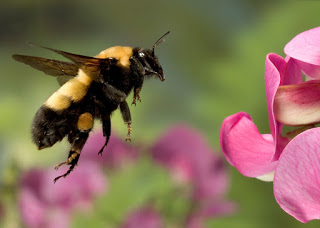Summary:
‘We have now entered the world’s sixth mass extinction event — the biggest, most rapid global biodiversity crisis since a meteor ended the age of the dinosaurs’ This is sad! A massive decline of bumblebees — the world’s most important pollinators — is now underway due to “climate chaos” and other human impacts on the world, scientists have warned. A new study reveals bumblebees are currently disappearing at rates “consistent with a mass extinction”, and are on course to be wiped out in just a “few decades”. The Independent Bumblebees face mass extinction amid ‘climate chaos’, scientists warn
Topics:
Mike Norman considers the following as important:
This could be interesting, too:
‘We have now entered the world’s sixth mass extinction event — the biggest, most rapid global biodiversity crisis since a meteor ended the age of the dinosaurs’ This is sad! A massive decline of bumblebees — the world’s most important pollinators — is now underway due to “climate chaos” and other human impacts on the world, scientists have warned. A new study reveals bumblebees are currently disappearing at rates “consistent with a mass extinction”, and are on course to be wiped out in just a “few decades”. The Independent Bumblebees face mass extinction amid ‘climate chaos’, scientists warn
Topics:
Mike Norman considers the following as important:
This could be interesting, too:
Robert Vienneau writes Austrian Capital Theory And Triple-Switching In The Corn-Tractor Model
Mike Norman writes The Accursed Tariffs — NeilW
Mike Norman writes IRS has agreed to share migrants’ tax information with ICE
Mike Norman writes Trump’s “Liberation Day”: Another PR Gag, or Global Reorientation Turning Point? — Simplicius
‘We have now entered the world’s sixth mass extinction event — the biggest, most rapid global biodiversity crisis since a meteor ended the age of the dinosaurs’
This is sad!
A massive decline of bumblebees — the world’s most important pollinators — is now underway due to “climate chaos” and other human impacts on the world, scientists have warned.
A new study reveals bumblebees are currently disappearing at rates “consistent with a mass extinction”, and are on course to be wiped out in just a “few decades”.
The Independent

